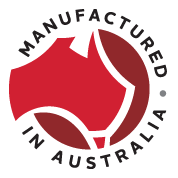The major nutritional requirements for cattle are water, energy, protein, minerals, and vitamins. In many cases, beef producers do a good job of providing adequate water, energy, and protein.
However, many producers buy cheap minerals, ignoring the fact that the availability of the minerals in the oxide form in many of these mixes is only 10 to 20% as absorbable by the animal in the sulphate, chloride, organic, or chelated forms in more expensive mineral mixes.
The advantage of more available forms of minerals is seen when stress increases. Consider the fact that weather can be a stress, whether it’s extreme heat or cold, and that working cattle at breeding, vaccination, and weaning can be stressors. So, why do so many producers buy minerals that don’t provide the best nutrition to the animal when they need it most, and buy the cheapest mineral instead?

In many cases, it’s because we think in terms of tons rather than days, and a ton of mineral seems expensive relative to a ton of hay, but not when you consider that a ton of mineral with an anticipated intake of 4 oz per day will provide feed for 8,000 animal days.
I can’t imagine a beef producer going to their truck dealership and asking for the truck with the least power when it’s under a load, or asking for the truck with the weakest transmission, but we do this same thing when we buy minerals with the poorest absorption during times of stress, then we buy additional hay, or grain, or treat sick newborn calves, or blame the bull when cows don’t breed in a timely manner.
In beef cattle, macro minerals are described as those required at concentrations greater than 100 ppm of the diet and are often expressed as a percentage of the diet.
Trace minerals are considered to be those required at concentrations less than 100 ppm. Macro minerals include calcium, phosphorus, potassium, magnesium, sulphur, and sodium and chloride (salt), whereas the trace minerals include cobalt, copper, iodine, manganese, selenium, iron and zinc. The most commonly deficient vitamin is vitamin A, as vitamin D is synthesized by cattle exposed to sunlight or fed sun-cured forages, and vitamin E concentrations are high in fresh forages. Rumen microflora synthesises B vitamins in sufficient quantities, and B vitamin supplementation is not normally needed. It is important to remember that the most important nutrient is the one that is missing or deficient, and in the case of nutrient imbalances, there can be more than one.

Magnesium and the trace minerals copper and manganese are all cofactors in the cow’s energy-producing metabolic pathways, and deficiencies can limit energy production and utilization at the tissue level. For instance, if a mineral is $1200 per ton, it seems like a lot of money so producers tend to purchase the cheapest mineral possible. However, at a 4-ounce per day intake, the mineral only costs $.15 per day ($1200 ÷ 2000 pounds = $.60 per pound × .25 [4 ounces = ¼ pound] = $.15 per day). The cost of good mineral nutrition is only $54.75 per animal per year (365 days × $.15 per day) Well, does that pay?
Let’s assume that the price of feeder calf is $1.50 per pound. If the cow’s nutritional status is insufficient, and she does not breed on her first oestrus, it will be 21 days before she can breed. Normally, calves should gain approximately 2.5 pounds per day from birth to weaning at 205 days. Remember that most operations wean their calves on one day. Therefore, losing 21 days on a calf’s age costs around 52.5 pounds (21 days × 2.5 pounds per day). At $1.50 per pound, that’s $78.75, or $24.00 more than the cow’s entire mineral nutrition cost for the entire year. Furthermore, many producers supplement their cows with distiller’s grains or corn. If dry distillers grains (DDG) are $300 per ton, that’s $.15 per pound ($300/ton ÷ 2000 lb/ton), and if corn is $7.00 per bushel, it costs $.125 per pound ($7.00/bu ÷ 56 lb/bu).
Source: Francis L. Fluharty, University of Georgia



